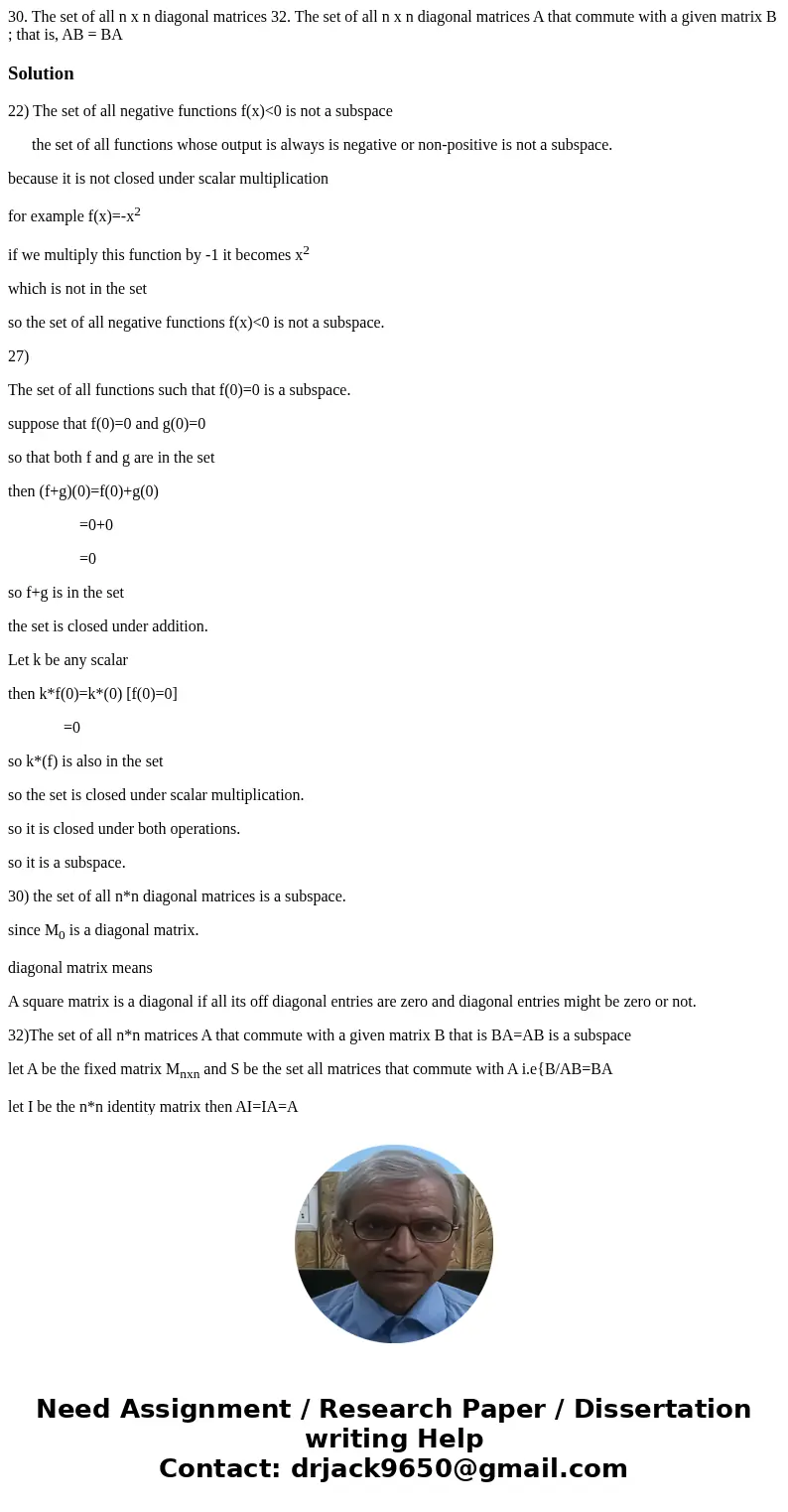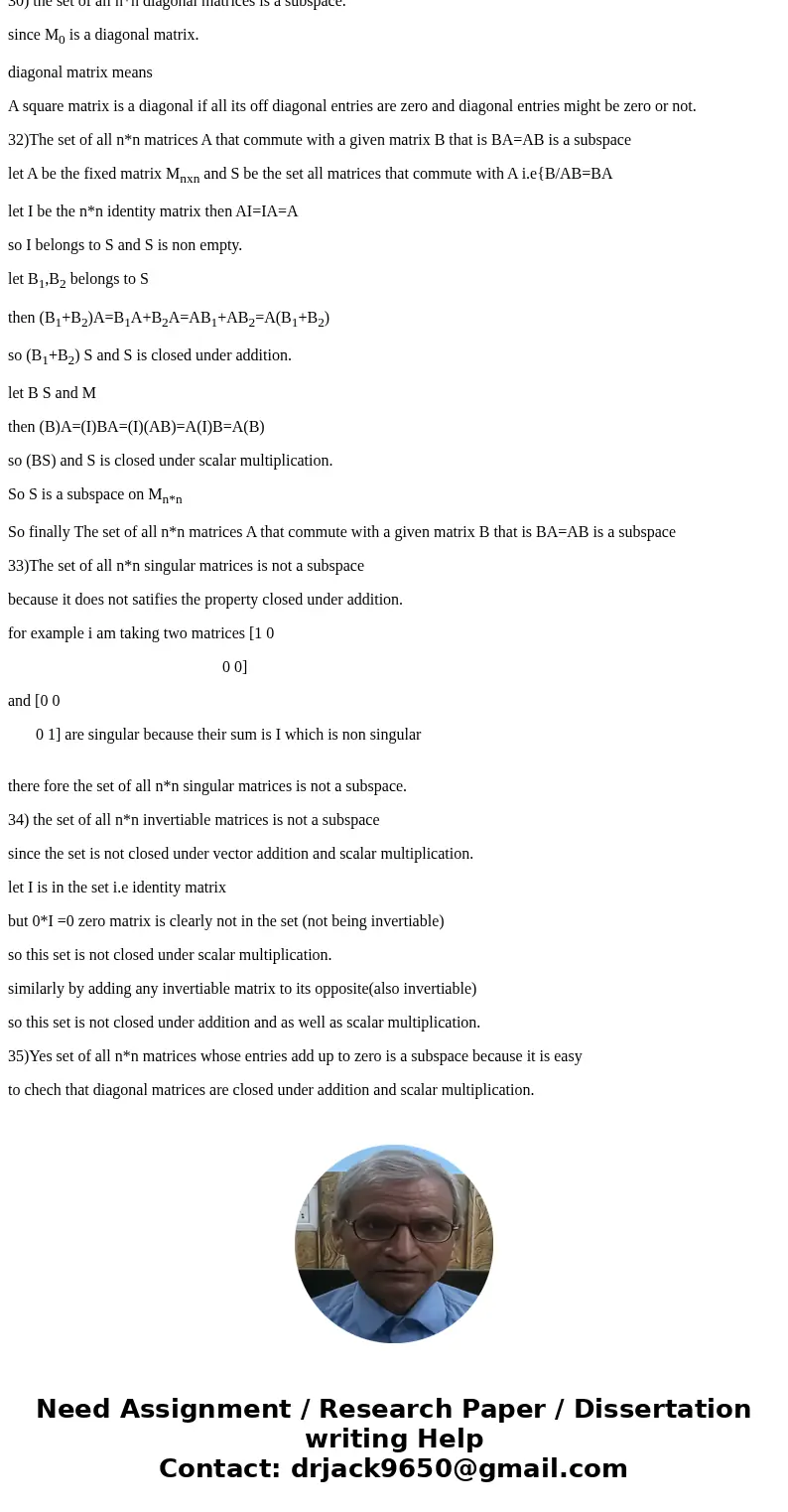30 The set of all n x n diagonal matrices 32 The set of all
Solution
22) The set of all negative functions f(x)<0 is not a subspace
the set of all functions whose output is always is negative or non-positive is not a subspace.
because it is not closed under scalar multiplication
for example f(x)=-x2
if we multiply this function by -1 it becomes x2
which is not in the set
so the set of all negative functions f(x)<0 is not a subspace.
27)
The set of all functions such that f(0)=0 is a subspace.
suppose that f(0)=0 and g(0)=0
so that both f and g are in the set
then (f+g)(0)=f(0)+g(0)
=0+0
=0
so f+g is in the set
the set is closed under addition.
Let k be any scalar
then k*f(0)=k*(0) [f(0)=0]
=0
so k*(f) is also in the set
so the set is closed under scalar multiplication.
so it is closed under both operations.
so it is a subspace.
30) the set of all n*n diagonal matrices is a subspace.
since M0 is a diagonal matrix.
diagonal matrix means
A square matrix is a diagonal if all its off diagonal entries are zero and diagonal entries might be zero or not.
32)The set of all n*n matrices A that commute with a given matrix B that is BA=AB is a subspace
let A be the fixed matrix Mnxn and S be the set all matrices that commute with A i.e{B/AB=BA
let I be the n*n identity matrix then AI=IA=A
so I belongs to S and S is non empty.
let B1,B2 belongs to S
then (B1+B2)A=B1A+B2A=AB1+AB2=A(B1+B2)
so (B1+B2) S and S is closed under addition.
let B S and M
then (B)A=(I)BA=(I)(AB)=A(I)B=A(B)
so (BS) and S is closed under scalar multiplication.
So S is a subspace on Mn*n
So finally The set of all n*n matrices A that commute with a given matrix B that is BA=AB is a subspace
33)The set of all n*n singular matrices is not a subspace
because it does not satifies the property closed under addition.
for example i am taking two matrices [1 0
0 0]
and [0 0
0 1] are singular because their sum is I which is non singular
there fore the set of all n*n singular matrices is not a subspace.
34) the set of all n*n invertiable matrices is not a subspace
since the set is not closed under vector addition and scalar multiplication.
let I is in the set i.e identity matrix
but 0*I =0 zero matrix is clearly not in the set (not being invertiable)
so this set is not closed under scalar multiplication.
similarly by adding any invertiable matrix to its opposite(also invertiable)
so this set is not closed under addition and as well as scalar multiplication.
35)Yes set of all n*n matrices whose entries add up to zero is a subspace because it is easy
to chech that diagonal matrices are closed under addition and scalar multiplication.


 Homework Sourse
Homework Sourse